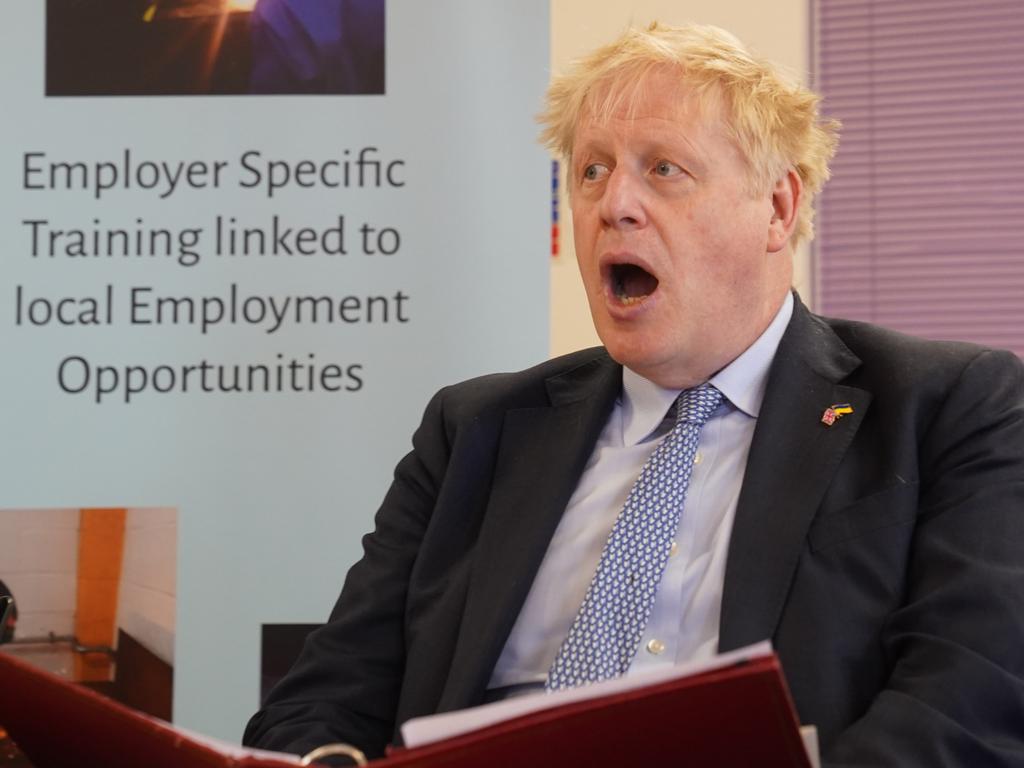History’s unhappy lesson: it’s now when, not if Boris will be replaced

Yet the political historian in Johnson will not be naive. Only one of those Tory leaders survived for long enough to fight the next general election, and they were roundly defeated in the party’s worst result in almost a century.
In private and in public, Johnson is insistent that this time it will be different – and even though he has lost the support of more than two fifths of his MPs, he will fight on.
Nevertheless, beyond historical precedent there are a range of factors that suggest he is not out of the danger zone and faces significant hurdles if he is to remain in office, let alone win the next election.

The first of these comes this month when voters go to the polls in two critical by-elections in Wakefield and Tiverton and Honiton. The first is a seat that the Conservatives need to win if Johnson is to show that Tory support is holding up in the red wall seats he took from Labour in 2019. A recent poll suggests not merely that the Tories will lose the seat, but that they will be routed. The second is notionally rock-solid Tory territory, where the party is defending a majority of 24,000. But the Liberal Democrats are running an insurgent campaign and there are fears that the party could repeat its success in North Shropshire, where it overturned a 23,000 majority to take the seat by nearly 6,000 votes.
A loss of both seats would reignite the jitters of Tory MPs on both sides of Johnson’s 2019 electoral coalition, while at the same time pulling the prime minister in different directions on a strategy to win back those voters.

Tory MPs in the south complain that Johnson’s emphasis on levelling up is alienating voters in the party’s heartlands, who are suffering through the crisis in the cost of living.
Conservative MPs in the north counter that if Johnson walks away from his new 2019 voters, he is finished anyway and the party will lose power at the next election.
Technically having won last night’s (Monday’s) vote, Johnson can’t face another formal confidence vote for a year. However, that rule is not set in stone and could be altered by a vote of the 1922 Committee. This was the threat that faced Theresa May and led to her announcing her decision to step down five months later.
And Johnson faces other hurdles that could hasten his demise. The most pressing of these is the Commons privileges committee investigation into whether the prime minister misled MPs when he stated that he was unaware of lockdown-breaking parties in Downing Street. The committee is expected to examine some of the documents gathered by Sue Gray, as well as to take evidence from her in person. The findings of the investigation are expected in the autumn.

Johnson’s defence is that although he attended leaving parties, he did so only briefly as part of his leadership role. But not having broken rules himself is one thing; he repeatedly assured MPs that the same was true of other staff in No 10.
Three Tory MPs on the committee – Laura Farris, Andy Carter and Alberto Costa – have resigned from their government posts to stay on the committee. All are independently minded and two have legal backgrounds. It is not a foregone conclusion that all Tories on the committee will give him a clean bill of health. If the committee were to find Johnson misled parliament, his position would almost certainly be untenable.
There is little sign, if any, that the larger political winds will blow in Johnson’s favour in the foreseeable future. The cost of living is going to get worse before it gets better, while inflation and rising interest rates are going to cause real economic hardship for many.

There are already indications that this could feed into widespread public sector strikes as workers protest at pay rises that don’t keep pace with the costs that they face.
The problem for Johnson is whatever policy he pursues will alienate more of his MPs. Some want him to go further to support people, while others argue that such direct intervention is fundamentally unconservative and will prolong rather than allay the crisis.
This is reflective of the prime minister’s wider problem and why it is now more likely a question of when rather than if he is replaced.
Those who have already turned against Johnson are unlikely to come back into the fold, while the loyalty of those who voted for him this morning cannot be taken for granted.
His opponents today came from all wings of the party, from remainers to Brexiteers and from 2019s to veterans. Johnson has never inspired ideological loyalty like Thatcher and is therefore much more vulnerable if he is no longer seen as a vote-winner.
Political gravity eventually drags down all leaders. It is the reason that Tory leaders rarely survive long after the knife is first wielded.
The Times







Boris Johnson this morning (AEST) became only the fourth Conservative leader since Margaret Thatcher to face a leadership challenge and survive.